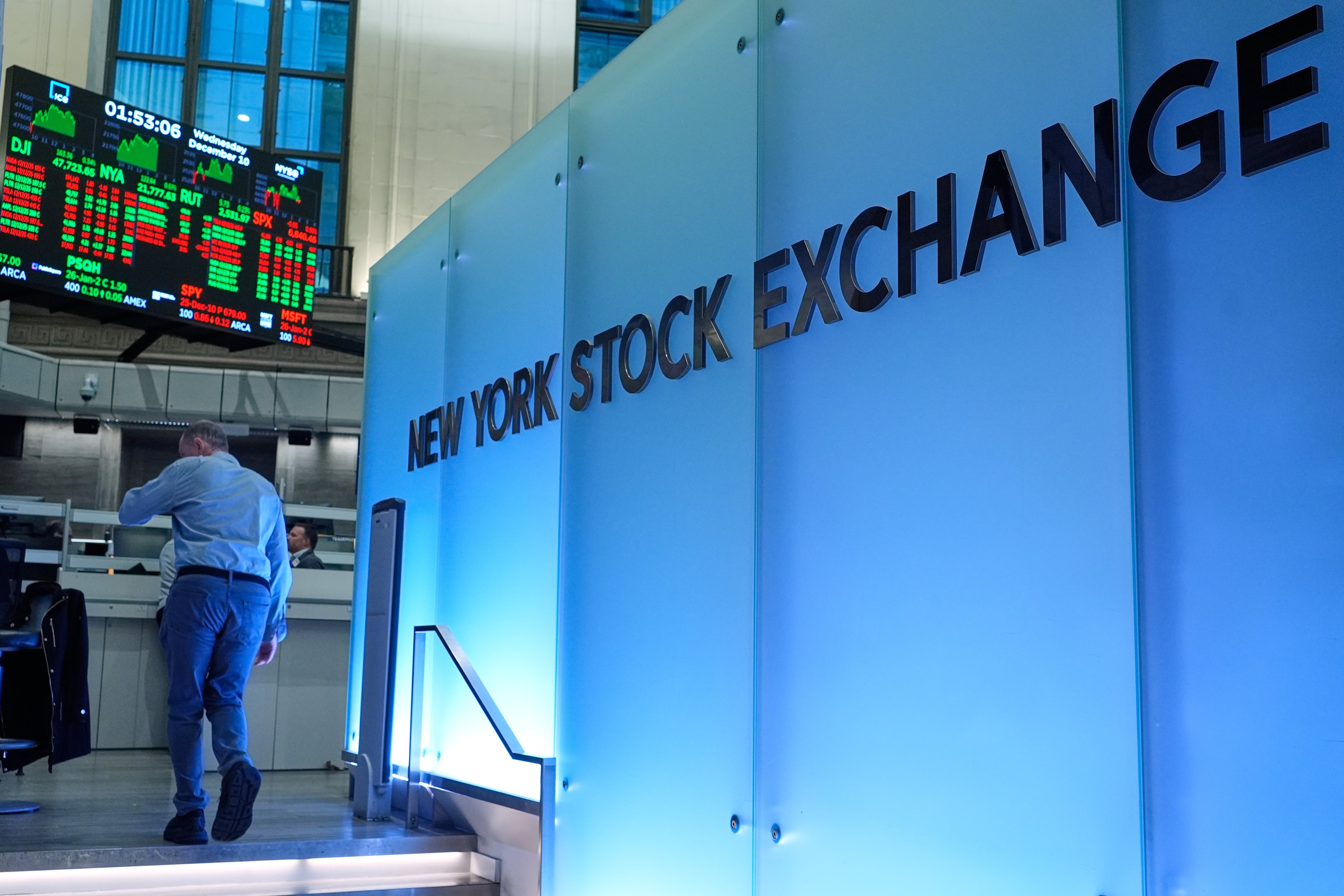NEW YORK (AP) — U.S. stocks are adding to their records on Friday as Wall Street cruises toward the finish of another winning week.
The S&P 500 rose 0.3% and is heading toward the close of its seventh winning week in the last nine. The Dow Jones Industrial Average added 439 points, or 0.9%, as of 1:30 p.m. Eastern time. The Nasdaq composite gave up and early gain and slipped 0.1%. All three indexes are coming off all-time highs set the day before.
Treasury yields were holding relatively steady in the bond market following mixed reports on activity for U.S. businesses in the health care, real estate and other services industries. One report from the Institute for Supply Management said growth in activity is stalling, while another from S&P Global said it’s still growing slowly.
Usually, the first Friday of each month has Wall Street transfixed on the monthly jobs update that the U.S. government publishes. It shows how many jobs employers created and destroyed, while also updating the unemployment rate.
Such data is particularly important now, given how much on Wall Street is riding on the expectation that the job market is continuing to slow by enough to get the Federal Reserve to keep cutting interest rates. But the shutdown of the U.S. government, now in its third day, is delaying the release.
So far, the U.S. stock market has looked past such delays, which also includes Thursday’s report on unemployment claims. Past shutdowns of the U.S. government have tended not to hurt the economy or stock market much, and the thinking is that this one could be similar, even if President Donald Trump has threatened large-scale firings of federal workers this time around.
That leaves excitement around artificial intelligence and the massive spending underway because of it as one of the drivers of the U.S. stock market, which has been setting record after record.
The industry got another boost after Japan’s Hitachi signed a memorandum of understanding with OpenAI related to powering AI. It followed a set of announcements by OpenAI with South Korean companies the day before. Hitachi’s stock jumped 10.3% in Tokyo.
But AI stocks have become so dominant, and so much money has poured into the industry that worries are rising about a potential bubble that could eventually lead to disappointment for investors.
On the losing end of Wall Street was Applied Materials, which sank 2.2%. The company, whose equipment helps make semiconductor chips, said it will take a roughly $110 million hit to its revenue in the fourth quarter because of a new U.S. Commerce Department rule expanding export restrictions to certain customers based in China.
Oil producers rose as the price of crude clawed back some of its sharp losses from earlier in the week, taken because of worries that the amount of oil in inventories will be too high relative to demand. Exxon Mobil climbed 2% and was one of the stronger forces lifting the S&P 500.
In stock markets abroad, indexes were mixed across Europe and Asia.
Japan’s Nikkei 225 was a big winner, and rose 1.9% thanks in part to Hitachi’s jump.
In the bond market, the yield on the 10-year Treasury held steady at 4.10%, where it was late Thursday.
___
AP Writers Teresa Cerojano and Matt Ott contributed.









